Are you worried that dandruff could be causing your hair loss? It’s a common concern that many individuals share. Dandruff, characterized by an itchy scalp and flaky skin, can be bothersome and lead to questions about its impact on hair health.
In this article, we will delve into the relationship between dandruff and hair loss, separating fact from fiction. By gaining a better understanding of this topic, you can address your concerns with clarity and take appropriate measures to maintain a healthy scalp and promote hair growth.
Understanding Dandruff
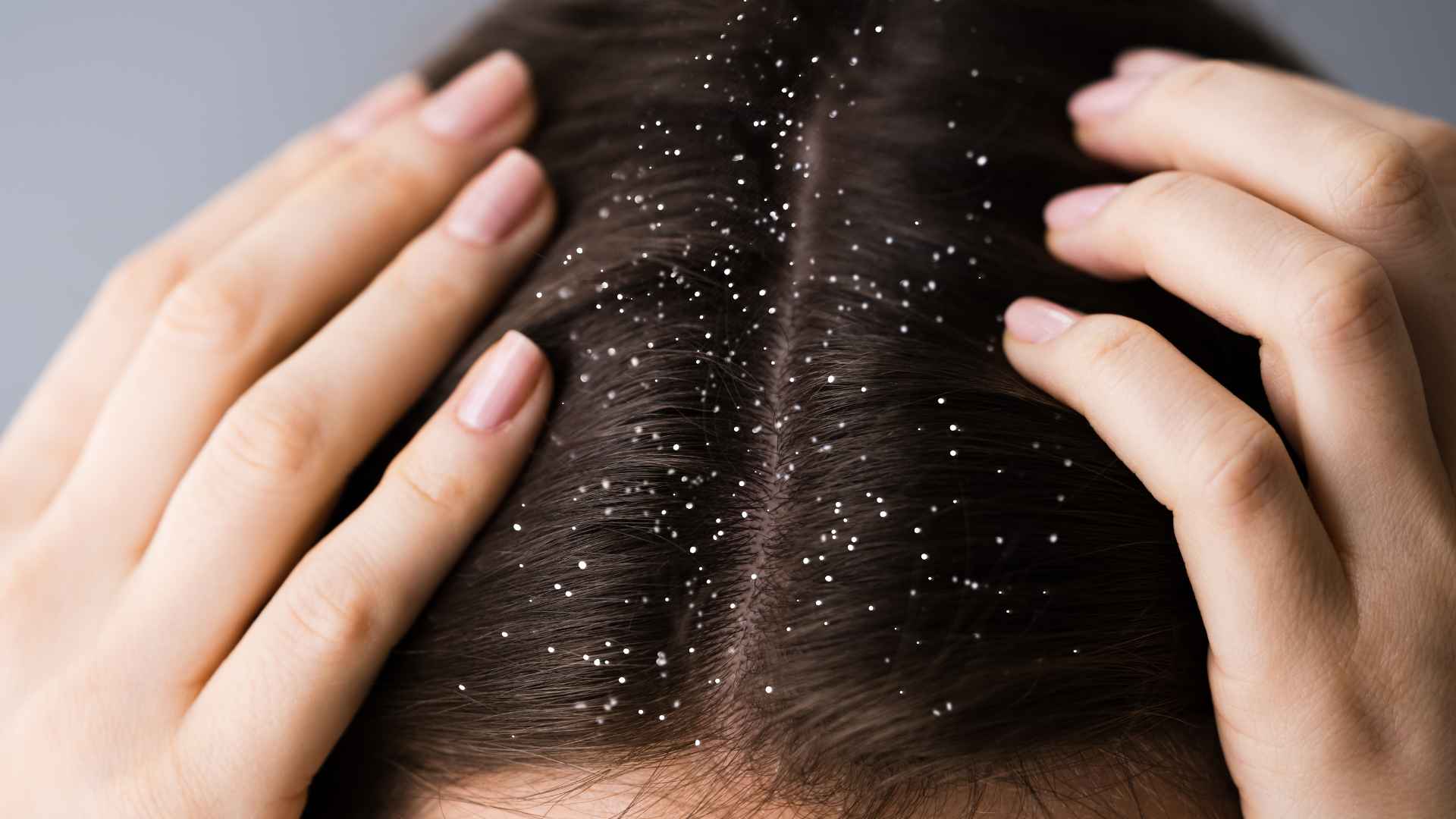
Dandruff is a common scalp condition that manifests as flaking, itching, and irritation. It is characterized by the shedding of dead skin cells from the scalp, resulting in visible white or yellowish flakes on the hair and shoulders. While dandruff can be bothersome and embarrassing, it is generally harmless and not contagious.
The primary cause of dandruff is an overgrowth of a yeast-like fungus called Malassezia. This fungus is naturally present on the scalp of most individuals and feeds on the oils produced by hair follicles. However, in some people, Malassezia can multiply excessively, leading to an imbalance in the scalp’s natural ecosystem.
Several factors can contribute to the overgrowth of Malassezia and the development of dandruff.
These include:
- Sebum production: The excessive production of sebum, the oily substance secreted by the scalp, can create an environment that favors the growth of Malassezia.
- Scalp sensitivity: Some individuals may have a heightened sensitivity to the byproducts of Malassezia, resulting in scalp irritation and dandruff.
- Dry skin: Dry skin on the scalp can make it more prone to flaking, exacerbating the appearance of dandruff.
- Improper hair hygiene: Infrequent shampooing or inadequate rinsing of hair can contribute to the accumulation of dead skin cells and oil on the scalp, providing an environment conducive to dandruff.
It is important to note that dandruff is a prevalent condition that affects millions of people worldwide. It is not indicative of poor hygiene or a serious medical condition. While it may cause discomfort and self-consciousness, dandruff can typically be managed and controlled with proper hair care, hygiene practices, and over-the-counter treatments. In more severe cases or when accompanied by persistent symptoms, a dermatologist can provide further guidance and recommend specific treatments or medicated shampoos to address dandruff effectively.
Misconception That Dandruff Directly Causes Hair Loss
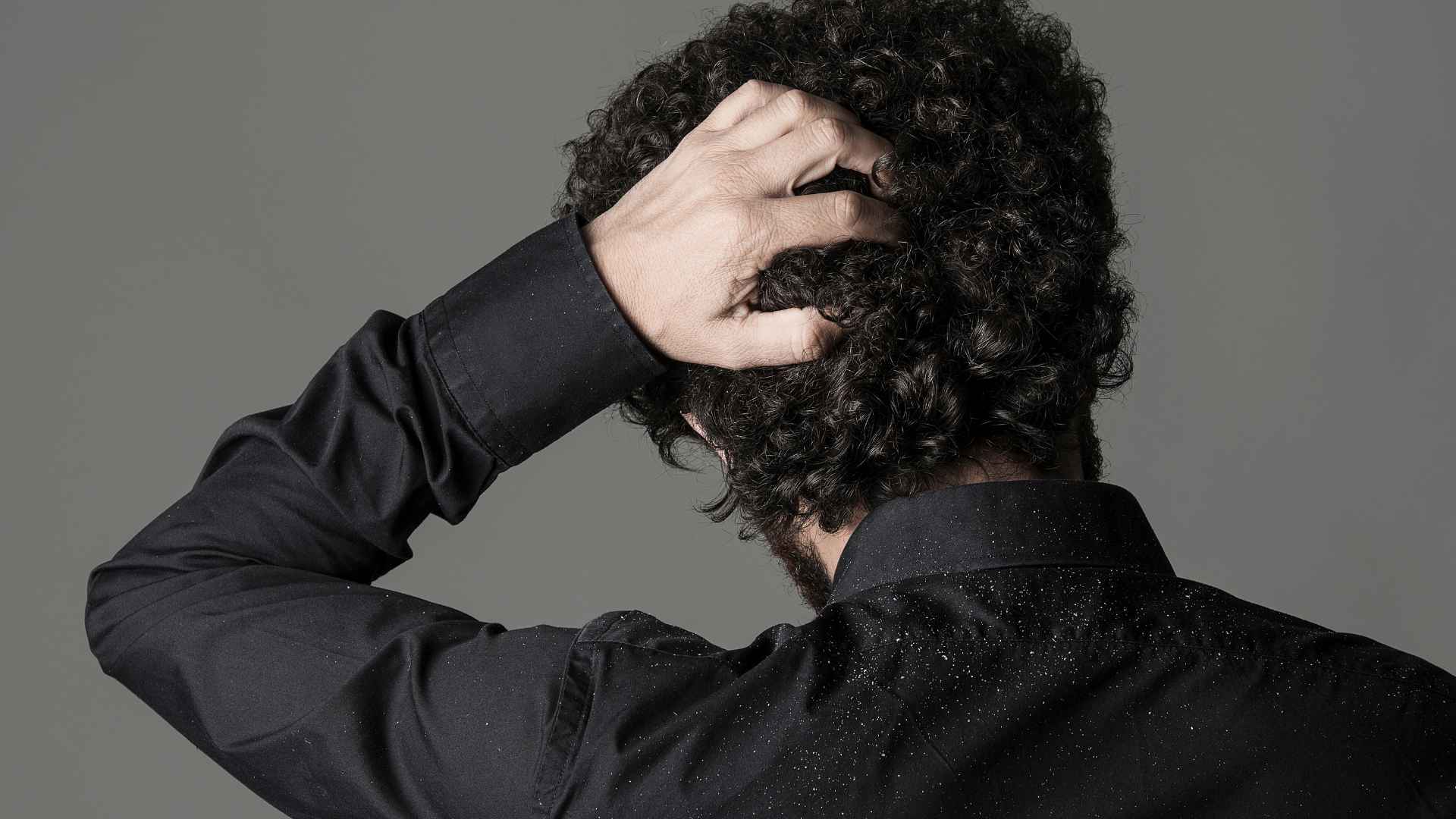
Contrary to popular belief, dandruff does not directly cause hair loss. Dandruff is a scalp condition characterized by flaking, itching, and irritation. It primarily affects the outermost layer of the scalp, known as the stratum corneum, which consists of dead skin cells. However, it does not have a direct impact on the hair follicles, which are responsible for hair growth.
Hair loss, on the other hand, can have various underlying causes such as genetic factors, hormonal imbalances, nutritional deficiencies, autoimmune disorders, certain medications, and other health conditions. These factors can affect the hair follicles, leading to hair thinning or hair loss over time.
While dandruff itself does not cause hair loss, excessive scratching of the scalp due to dandruff-related itchiness can potentially damage the hair. Intense scratching can lead to temporary hair breakage or hair shedding, but this is not the same as permanent hair loss. The root cause of hair loss typically lies elsewhere, and it is important to address the underlying factors contributing to it.
It is worth noting that scratching the scalp excessively can disrupt the hair growth cycle and cause hair follicle inflammation. This can potentially lead to a condition called traction alopecia, where prolonged tension or pulling on the hair can cause it to weaken and eventually lead to hair loss in the affected areas. However, this type of hair loss is a result of the excessive mechanical stress on the hair, rather than dandruff itself.
If you are experiencing significant hair loss or have concerns about your hair health, it is always recommended to consult with a healthcare professional or dermatologist. They can evaluate your specific situation, determine the cause of hair loss, and provide appropriate guidance and treatment options.
To summarize, dandruff itself does not directly cause hair loss as it primarily affects the scalp and does not impact the hair follicles. Excessive scratching due to dandruff-related itchiness can potentially damage the hair, but the root cause of hair loss lies elsewhere and should be addressed separately.
What Are the Various Factors That Contribute to Hair Loss?
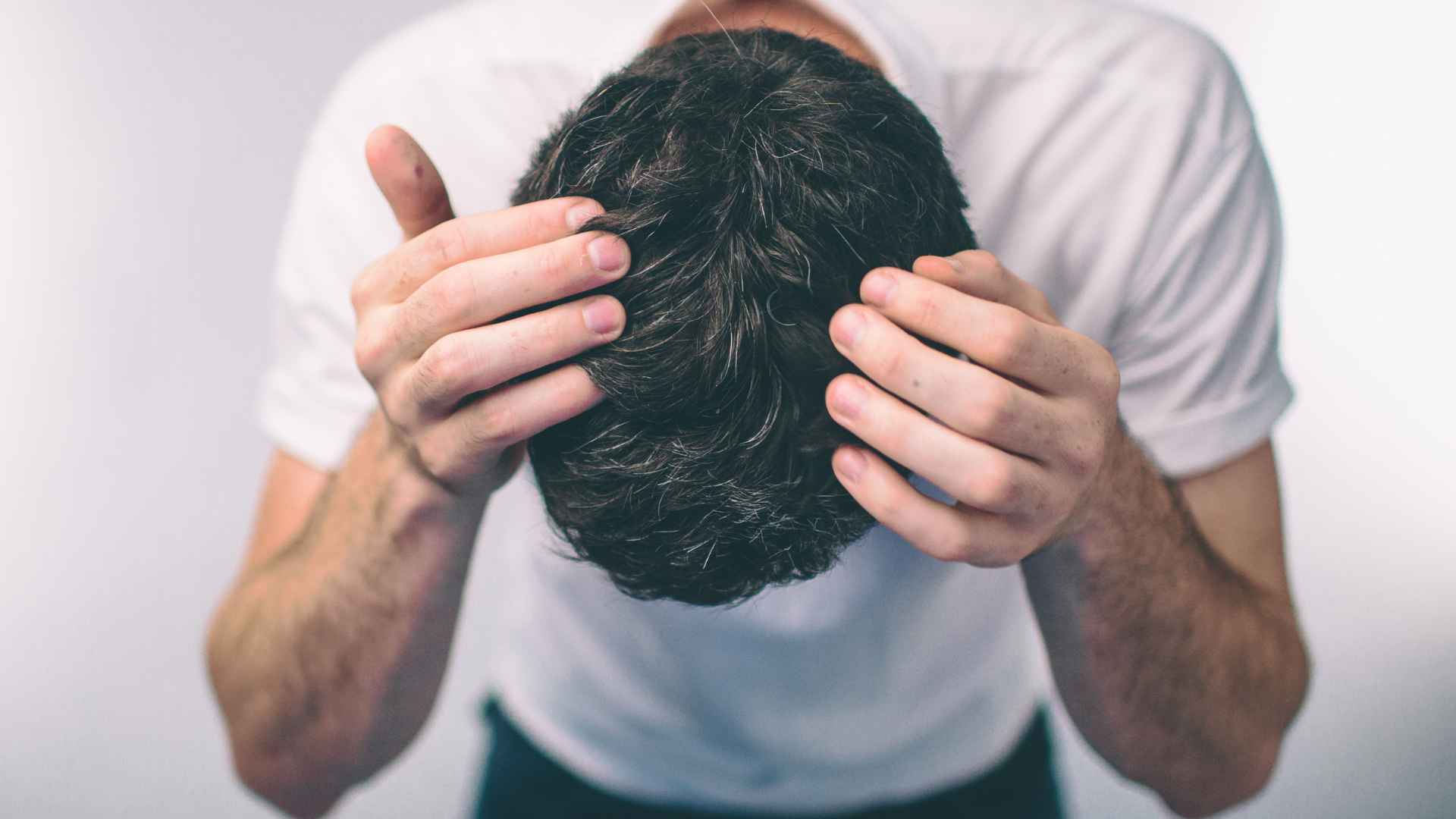
Let’s discuss the real causes of hair loss and how various factors contribute to it, while emphasizing that dandruff is not considered a primary cause of hair loss by medical experts.
- Genetics (Androgenetic Alopecia): One of the most common causes of hair loss is a genetic condition called androgenetic alopecia, often referred to as male-pattern or female-pattern baldness. It is inherited and can affect both men and women. This type of hair loss is influenced by hormones and typically occurs gradually over time. In individuals with a genetic predisposition, hair follicles become sensitive to the hormone dihydrotestosterone (DHT), which causes them to shrink and produce thinner, shorter hair strands until they eventually stop producing new hair.
- Hormonal Imbalances: Hormonal changes can contribute to hair loss. For example, in women, hormonal fluctuations during pregnancy, childbirth, or menopause can lead to temporary hair shedding. Conditions like polycystic ovary syndrome (PCOS) can also cause hormonal imbalances, leading to hair loss. In men, an imbalance of hormones like testosterone can contribute to male-pattern baldness.
- Medical Conditions and Treatments: Certain medical conditions and treatments can lead to hair loss. These include thyroid disorders (hypothyroidism or hyperthyroidism), autoimmune diseases (such as alopecia areata), scalp infections, nutritional deficiencies, and side effects of certain medications (like chemotherapy drugs). These factors can disrupt the hair growth cycle, leading to excessive shedding or hair thinning.
- Stress and Physical Trauma: Emotional or physical stress can trigger temporary hair loss. Telogen effluvium is a condition where a significant number of hair follicles prematurely enter the resting (telogen) phase of the hair growth cycle. This can be caused by emotional stress, severe illness, surgery, or a traumatic event. Hair shedding usually occurs a few months after the triggering event but is temporary, and hair growth resumes once the underlying stressor is resolved.
It is important to note that while dandruff can cause scalp itching and irritation, it is not considered a primary cause of hair loss by medical experts. Dandruff primarily affects the surface of the scalp and does not directly impact the hair follicles or disrupt the hair growth cycle.
If you are experiencing hair loss or have concerns about your hair health, it is advisable to consult with a healthcare professional or dermatologist. They can evaluate your specific situation, identify the underlying cause, and recommend appropriate treatments or lifestyle modifications to address the issue effectively.
In Some Cases, Untreated or Severe Dandruff May Indirectly Contribute to Hair Loss
While dandruff itself is not considered a primary cause of hair loss, in some cases, untreated or severe dandruff may indirectly contribute to hair breakage or temporary hair loss. It is important to note that this is not a direct result of dandruff but rather the consequences of persistent scratching due to dandruff-related itchiness.
When the scalp becomes itchy and irritated due to dandruff, the natural response is to scratch the affected areas. Excessive scratching can lead to mechanical damage to the hair, resulting in temporary hair breakage or hair loss. The hair shafts can weaken or be pulled out, particularly if the scratching is forceful or frequent.
To mitigate the potential risk of hair breakage caused by scratching, it is essential to manage dandruff effectively. Here are some suggestions:
- Use anti-dandruff shampoos: Look for shampoos specifically formulated to treat dandruff. These shampoos often contain active ingredients such as ketoconazole, selenium sulfide, zinc pyrithione, or coal tar, which can help reduce the overgrowth of Malassezia fungus on the scalp.
- Maintain good scalp hygiene: Regularly wash your hair and scalp to keep them clean. Gently massage the scalp while shampooing to help remove excess oil, dead skin cells, and dandruff flakes. Avoid using hot water as it can dry out the scalp and exacerbate dandruff.
- Avoid harsh hair treatments: Minimize the use of harsh hair products, such as chemical relaxers, dyes, or excessive heat styling, as they can further irritate the scalp and potentially worsen dandruff symptoms.
- Moisturize the scalp: If your scalp tends to be dry, consider using a mild, moisturizing conditioner or natural oils like coconut oil or jojoba oil to help hydrate the scalp and reduce flakiness.
- Seek professional advice: If over-the-counter dandruff treatments are not effective in managing your symptoms, consult a dermatologist. They can provide personalized recommendations and prescribe medicated shampoos or topical treatments tailored to your specific needs.
By managing dandruff effectively, you can help reduce scalp irritation and minimize the risk of excessive scratching, thereby promoting a healthier scalp environment and potentially mitigating any temporary hair breakage associated with dandruff-related itchiness.
It’s important to note that if you are experiencing significant hair loss or have concerns about your hair health, it is advisable to consult with a healthcare professional or dermatologist. They can evaluate your specific situation, determine the underlying cause, and provide appropriate guidance and treatment options.
Few Tips for Managing and Treating Dandruff Effectively
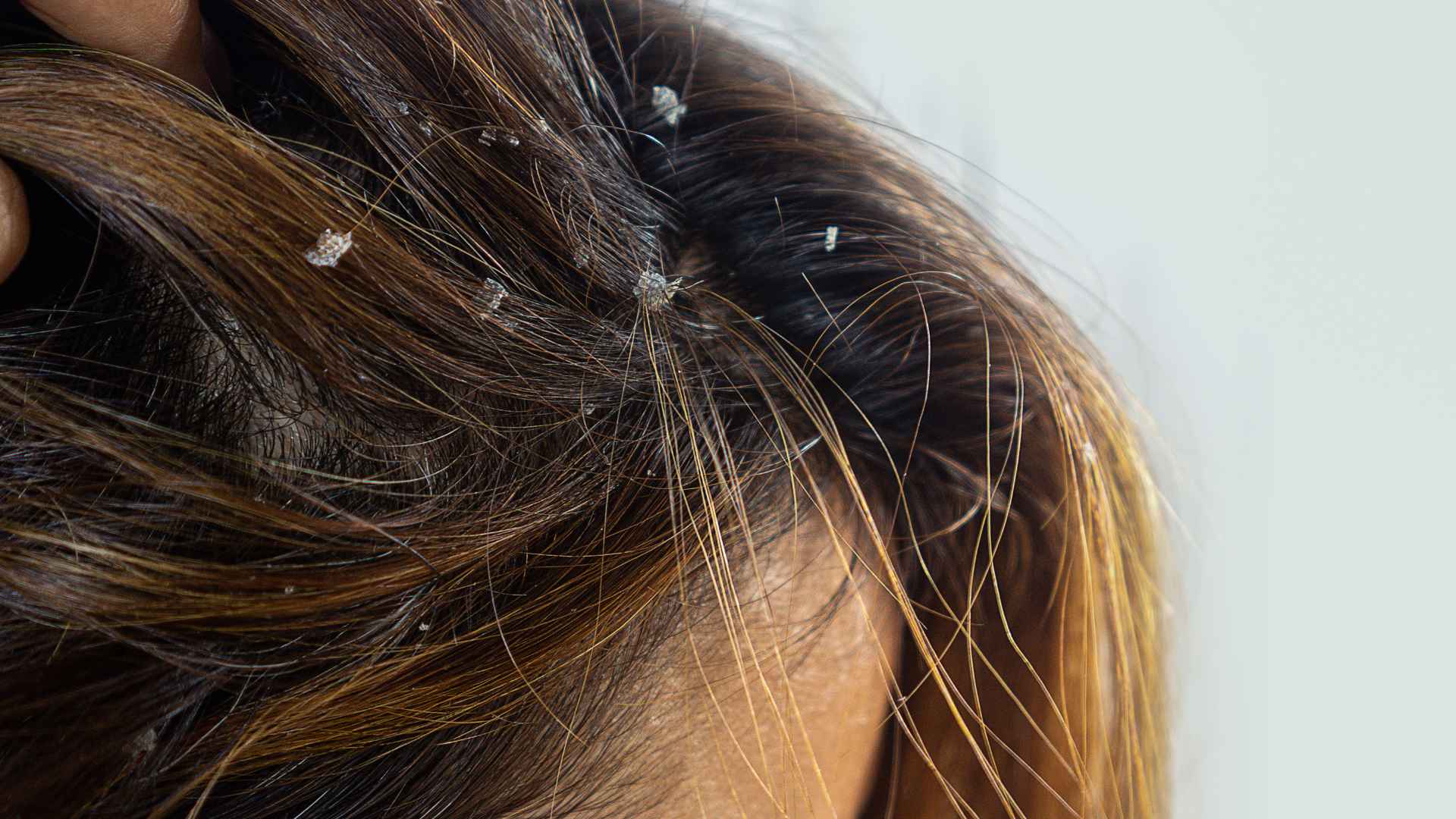
Here are some tips for managing and treating dandruff effectively, as well as promoting overall hair health:
- Medicated shampoos: Look for over-the-counter shampoos that contain active ingredients known to be effective against dandruff, such as zinc pyrithione, ketoconazole, or selenium sulfide. These ingredients help control the growth of the yeast-like fungus Malassezia on the scalp and reduce flaking. Follow the instructions on the shampoo bottle for best results.
- Consistent hair care routine: Maintain a regular hair care routine that includes regular shampooing. Washing your hair regularly helps to remove excess oil, dead skin cells, and dandruff flakes from the scalp. Use lukewarm water and a gentle shampoo, and avoid using hot water as it can dry out the scalp. Gently massage your scalp while shampooing to improve blood circulation and promote a healthy scalp.
- Avoid harsh hair products: Some hair products, such as styling gels, hairsprays, or certain shampoos containing harsh chemicals, can irritate the scalp and worsen dandruff symptoms. Opt for mild, gentle hair care products and avoid excessive use of styling products that can build up on the scalp.
- Balanced diet: Maintain a balanced and nutritious diet to promote overall hair health. Include foods rich in vitamins, minerals, and proteins, such as fruits, vegetables, lean meats, whole grains, and legumes. Adequate protein intake is particularly important for healthy hair growth.
- Stress management: Chronic stress can potentially worsen dandruff symptoms. Practice stress management techniques like exercise, meditation, deep breathing exercises, or engaging in activities you enjoy to help reduce stress levels. This can have a positive impact on your overall health, including your hair.
- Adequate hydration: Drink plenty of water to stay hydrated. Proper hydration helps maintain the health of the scalp and hair follicles.
- Avoid excessive heat and styling: Excessive heat from hair dryers, curling irons, or straighteners can dry out the scalp and contribute to dandruff. Limit the use of heat styling tools and use them on the lowest heat setting possible to minimize damage to the hair and scalp.
Remember, consistent and proper hair care, along with a healthy lifestyle, can contribute to managing dandruff effectively and promoting overall hair health. If dandruff persists or worsens despite these measures, it is advisable to consult a dermatologist who can provide further guidance and recommend appropriate treatment options.
When to Seek Professional Help
Here’s the advice for when to seek professional help regarding dandruff and hair loss:
If you are experiencing severe dandruff that does not respond to over-the-counter treatments or if you have concerns about your hair loss, it is advisable to consult a dermatologist or healthcare professional. They have the expertise to provide a proper diagnosis and recommend personalized treatment options based on your specific condition.
A dermatologist can assess the severity of your dandruff, examine your scalp, and determine if there are any underlying factors contributing to your symptoms. They can perform tests, if necessary, to identify any scalp conditions or infections that may require specialized treatment.
Additionally, if you are experiencing significant hair loss or have concerns about your hair health, a dermatologist can help identify the underlying causes. They can evaluate your medical history, perform a physical examination, and order any relevant tests to determine the root cause of the hair loss. By addressing the underlying causes, the dermatologist can provide appropriate treatment options that target the specific issue and help promote hair regrowth or minimize further hair loss.
It’s important to remember that each individual’s case is unique, and the appropriate treatment may vary. Consulting a professional ensures that you receive accurate diagnosis, personalized advice, and tailored treatment options for your specific condition.
If you are unsure whether you should seek professional help, it is always better to err on the side of caution and schedule a consultation. Early intervention and proper treatment can help address dandruff and hair loss effectively, leading to healthier hair and scalp.
Watch Is hair loss due to dandruff reversible | Video
Top 5 FAQs and answers related to Can dandruff lead to hair loss
Does dandruff directly cause hair loss?
No, dandruff itself does not directly cause hair loss. Dandruff primarily affects the scalp and does not impact the hair follicles, which are responsible for hair growth.
Can excessive scratching due to dandruff cause hair loss?
Excessive scratching of the scalp due to dandruff-related itchiness can potentially lead to temporary hair breakage or hair loss. It is the mechanical damage caused by scratching, rather than dandruff itself, that can contribute to hair breakage.
Is dandruff a common cause of hair loss?
No, dandruff is not considered a common cause of hair loss. Hair loss is more commonly associated with factors such as genetics, hormonal imbalances, medical conditions, stress, and other underlying causes.
Can treating dandruff prevent hair loss?
Managing and treating dandruff effectively can help reduce scalp irritation and minimize the risk of hair breakage caused by scratching. However, if hair loss is primarily due to factors other than dandruff, addressing the underlying cause is crucial for effective treatment.
When should I seek professional help for dandruff-related hair loss concerns?
If you are experiencing severe dandruff that does not respond to over-the-counter treatments or if you have significant hair loss, it is advisable to consult a dermatologist or healthcare professional. They can provide a proper diagnosis, identify any underlying causes, and recommend appropriate treatment options based on your specific condition.
Conclusion
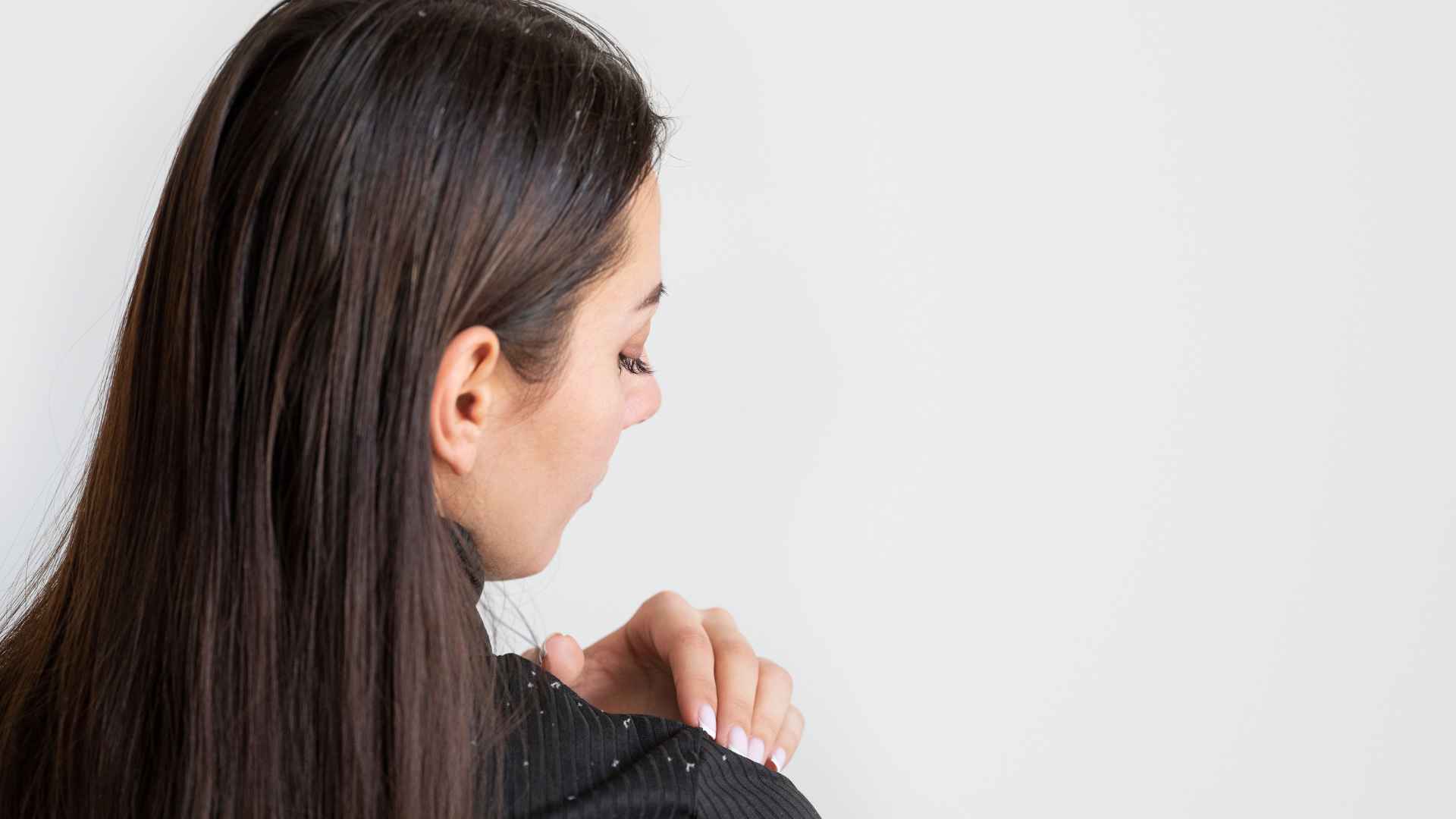
In conclusion, let’s recap the main points discussed in the article:
- Dandruff does not directly cause hair loss but primarily affects the scalp and does not impact the hair follicles.
- Excessive scratching due to dandruff-related itchiness can potentially lead to temporary hair breakage or hair loss.
- The main causes of hair loss include genetics, hormonal imbalances, medical conditions, stress, and other underlying factors.
- While dandruff itself is not a primary cause of hair loss, managing it properly is crucial for scalp health and minimizing potential hair breakage caused by scratching.
- Effective dandruff management includes using medicated shampoos, maintaining a consistent hair care routine, avoiding harsh products, following a balanced diet, managing stress, and staying hydrated.
- It is important to seek professional help from a dermatologist or healthcare professional if dandruff is severe, persistent, or if there are concerns about hair loss.
- By taking a holistic approach to hair care and addressing any underlying causes, individuals can maintain a healthy scalp and hair.
In summary, while dandruff does not directly cause hair loss, it is important to manage it effectively for overall scalp health. By following a comprehensive hair care routine, maintaining a healthy lifestyle, and seeking professional advice when needed, individuals can take control of their hair health and enjoy a healthy scalp and hair.
Please share this Can Dandruff Lead to Hair Loss? Debunking the Myth Guide with your friends and do a comment below about your feedback.
We will meet you on next article.
Until you can read, Is Hair Loss Normal? Guide with Causes for Hair Loss